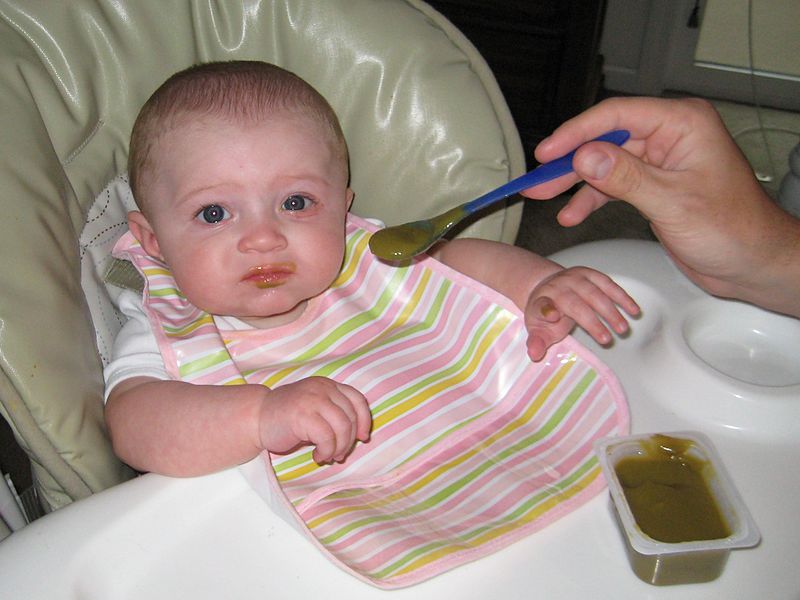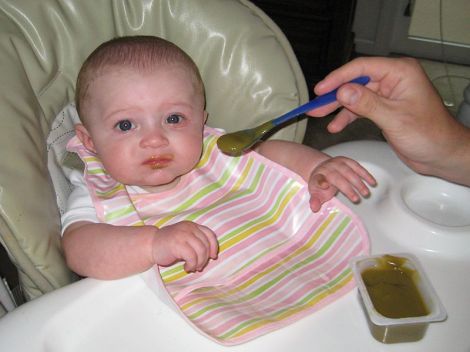Organic baby food makes up about 10 percent of the $1.4 billion spent on baby food and snacks, maybe less because so many people buy it and more because it costs like twice as much as regular baby food. A recent study raises the question: Is this money you really need to spend?
A 2012 study in the Annals of Internal Medicine looked at whether organic foods were safer or healthier than conventional foods. The study, which included pregnant women and children, found no evidence that organic food was superior to conventional food, in terms of nutrition. But it did find a 30 percent lower risk of pesticide contamination in organic food. Which … sounds like a desirable quality in a baby food, from where we’re sitting.
Then again, it’s rare for food from either group to exceed EPA limits for pesticides. (Another study, albeit from 2000, found no pesticides in regular or organic baby chow.) So in other words, non-organic food is perfectly safe, and we can believe this because the EPA tells us so? OK. I am happy that the EPA exists but I also might not put my health or my baby’s health in its hands — it is maybe not BFF, but at least F, with Monsanto. Not exactly like listening to grandma.
One interesting comment from scientists on the subject: It’s not as important that you give your baby organic food as that you give your baby a variety of foods. So it seems the takeaway is, if you want to eat organic you can, and it’s certainly not a bad idea, but maybe it’s not as crucial as you think it is, so if you can’t afford it don’t sweat it. The healthiest babies are the ones that get lots of different and varied things to eat, not the ones that shop exclusively at Whole Foods. And apparently your child will get only “acceptable” levels of pesticides with both. Which is more the EPA’s problem for thinking there’s an acceptable level of pesticides to feed a baby.




